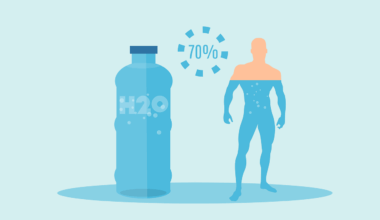The Effects of Environmental Toxins on Hormones and Libido
Environmental toxins have substantial effects on hormonal balance and, as a result, on libido. Many individuals underestimate the impact of daily exposure to hidden chemicals. These toxins are prevalent in chemicals used in household products, pesticides, and even personal care items. Studies have increasingly suggested that substances, such as phthalates and bisphenol A (BPA), can disrupt endocrine functions. Endocrine disruptors mimic or interfere with hormones, creating an imbalance that can lead to decreased libido. Furthermore, toxins can affect reproductive health by altering hormone levels necessary for normal sexual function. For instance, exposure to these chemicals has been linked to reduced testosterone levels in males and declining estrogen levels in females. Both of these factors are crucial for maintaining sexual desire. It’s important to recognize that eliminating these toxins is not straightforward, as they can accumulate in the body over time. This accumulation can exacerbate symptoms as hormonal balance continues to shift unfavorably. Therefore, understanding and mitigating exposure to environmental toxins is essential for preserving hormonal health, thereby enhancing sexual well-being.
One of the most concerning aspects of environmental toxins is their widespread presence in everyday products. Consumers often overlook the multitude of items that can contain endocrine disruptors. Items such as plastic containers, certain food packaging, and even cleaning agents can contribute to hormonal imbalances. By reading labels and opting for safer, non-toxic alternatives, individuals can significantly reduce their exposure. Furthermore, many personal care products, such as shampoos, lotions, and deodorants, often contain harmful chemicals. These substances can penetrate the skin and enter the bloodstream, further complicating hormonal health. The cumulative effect of such exposure can be quite detrimental, especially when considering the long-term consequences on libido and overall health. Moreover, educating oneself on the various toxins and their effects can empower consumers to make informed choices. Reducing exposure not only benefits hormonal health but also promotes overall wellness. Strategies like choosing organic foods and using glass or stainless steel instead of plastic can make a substantial difference. Every small change contributes to a healthier lifestyle, supporting both libido and hormone regulation.
Understanding Hormonal Disruption
Hormonal disruption from environmental toxins primarily affects the endocrine system. This intricate system regulates hormones responsible for libido, reproduction, and overall health. When exposed to harmful substances, hormone levels can fluctuate dramatically. For example, studies show that phthalates, commonly found in plastics, reduce testosterone in men. Lower testosterone can lead to diminished libido and sexual dysfunction. Similarly, women experience hormonal changes that can affect estrogen levels, thereby impacting sexual desire. Research indicates that these disruptions can result in far more serious conditions, such as infertility, polycystic ovary syndrome (PCOS), and reduced libido. The symptoms may often go unnoticed or be attributed to other lifestyle factors, such as stress or aging. However, it is crucial to connect such symptoms with possible environmental exposures. This understanding encourages individuals to evaluate their environments critically. Health practitioners increasingly advocate for holistic approaches, considering both lifestyle and environmental factors. Managing stress, ensuring proper nutrition, and minimizing toxins can create a balanced hormonal landscape. Therefore, awareness and action against environmental toxins pave the way for healthier sexual and hormonal wellness.
As we delve deeper into the effects of toxins, it’s clear that lifestyle choices play a significant role in combating hormone disruption. Removing harmful products from daily routines can be remarkably beneficial. One effective method is opting for organic products when possible. Organic farming practices typically reduce exposure to harmful pesticides and fertilizers, which are common sources of endocrine disruptors. Additionally, adopting a diet rich in whole foods can improve hormonal health. Foods that are high in antioxidants, such as berries and leafy greens, can help the body detoxify. Supplements like omega-3 fatty acids and vitamin D may also support hormonal balance. Staying hydrated, exercising regularly, and getting adequate sleep are equally crucial to maintaining hormonal health. These lifestyle modifications can greatly increase libido and improve overall well-being. Moreover, engaging in regular physical activity not only enhances mood but also promotes healthy hormone levels. Ultimately, understanding the connection between environmental toxins and libido encourages proactive behavior towards health. Striving for a lifestyle that incorporates healthy choices can significantly mitigate the negative effects of toxins.
Long-Term Health Implications
The long-term implications of continued exposure to environmental toxins are concerning for everyone’s hormonal health. Chronic exposure can create cumulative effects, leading to persistent disturbances in hormonal balance which may not present immediate symptoms. The risk of developing chronic health issues, including metabolic disorders and reproductive problems, may greatly increase. Research indicates that certain endocrine disruptors can have intergenerational effects, potentially influencing not only the individual but also their offspring. Therefore, addressing hormone-related concerns necessitates a comprehensive approach that includes awareness of environmental impacts. Engaging in practices that eliminate exposures is crucial for safeguarding future generations. Future research must also identify safe thresholds for the exposure to these chemicals. Citizens can advocate for more transparent regulations regarding chemical safety in consumer products. The combination of individual action and systemic change could potentially foster a healthier environment. For example, supporting policies that ban harmful chemicals can lead to a reduction in public health risks. Educating communities about avoiding endocrine disruptors also empowers people to make informed choices for themselves and their families. Investing in hormonal health today can yield benefits that extend beyond one’s own life.
Individual responsibility toward reducing toxin exposure involves collective awareness and action. Creating a lifestyle that minimizes environmental impact encourages a healthier hormonal landscape. One way to promote awareness is through community health workshops and informative sessions. Discussing the importance of recognizing potential toxins can inspire others to reconsider their daily habits. Finally, supporting local organizations promoting sustainability can help spread the message further. Additionally, awareness campaigns about the dangers of toxics can educate broader audiences. Social media platforms serve as effective venues for raising awareness about chemical safety. Utilizing these platforms can expand reach and engage diverse audiences in conversations around hormonal health. Furthermore, personal experiences shared on these platforms can resonate with others experiencing similar challenges. Advocating for change requires collaboration and sharing ideas on sustainable practices. Building supportive networks can help individuals navigate their journeys toward better health. The ultimate goal is to foster a collective movement that prioritizes a clean environment and healthy hormones. Each positive change, no matter how small, contributes to the larger picture of improved health for individuals and future generations.
Conclusion and Call to Action
In conclusion, the effects of environmental toxins on hormones and libido are far-reaching and significant. The awareness of these impacts underscores the necessity for proactive steps in everyday life. By minimizing exposure to harmful chemicals and better understanding their effects, individuals can enhance their hormonal health. Everyone can implement simple yet effective strategies. It’s essential to choose organic products, stay informed, and educate others about the risks associated with environmental toxins. Moreover, engaging in healthier lifestyle choices collectively impacts hormonal balance and well-being. Remember that changes take time, but the cumulative effect of small decisions adds up to significant improvements. Together, we can work towards creating a healthier, toxin-free environment for ourselves and future generations. Start today by evaluating your surroundings and making informed choices. Consider supporting local and sustainable brands that prioritize your health. Becoming part of the solution involves both individual accountability and community action. Encouraging friends and family to adopt healthier practices fosters a supportive environment. Let’s commit to protecting our hormonal health by actively addressing the challenges posed by environmental toxins.
Ultimately, the journey towards hormonal health and improved libido requires knowledge, awareness, and collective effort. Each person’s commitment to reducing toxins significantly impacts broader societal health. As awareness grows, individuals become more empowered to take action. Through education, informed choices, and advocacy, we can change the course of our health and the health of future generations.


